Last week I introduced the mentoring Survey. You are free to take the survey if you haven’t yet. You’ll find it HERE. I’ll continue to update any significant changes or swing in numbers, which may occur.
This week I’ve talked about mentoring, here are those posts in the order they appeared.
In this series, I’ve written about:
5 Questions to Help You Know What to do with a Mentor
This is not the end of this discussion, but hopefully you’ll see a few trend in the results of this survey. Over 200 people have taken the survey at this point.
This is encouraging, as almost 75% of people say they have had a mentor.
Again, 75% say they have been a mentor. I suspect this number is higher than this, when considering some of the types of mentors I discussed earlier in this series. Interestingly, this percent started much lower and increased steadily as the series continued and more people took the survey.
It could be the nature of my readership, but I found it interesting that the number of people who say they are mentoring is so much larger than the number being mentored.
People were fairly split on this answer of whether a mentor should be the same sex. There’s more to this issue I may address later. I did share my thoughts with someone asking my opinion on my Facebook page.
Most people seem to know what they the term mentoring means…at least as they define it I suppose.
85% say they could currently use a mentor in their life…Wow! I realize some of those may have a mentor and I purposefully didn’t give that qualifier, because in this question I was trying to capture the recognition of need. 11% say maybe…I am most curious about the 3% who said no, that they didn’t currently need a mentor. Hopefully that’s because they already have one.
I was a little surprised here…and excited…and perhaps disappointed all at the same time. The greatest need seems to be for a spiritual mentor. That’s great news that people recognize it, but it makes me wonder if the church is meeting this need. I wish the need for a relational mentor had been higher…just saying…Most often you don’t know you need one there until you need one.
No commentary here, but it does appear a majority of people recognize the age of the mentor could matter, depending on the circumstance.
The largest number of people believe a weekly meeting with a mentor is needed, others see an as needed or monthly meeting as an option. Very few took the quarterly approach, though I believe in a very structured setting, a quarterly mentor could work well for overall life planning and wisdom sharing. I may post more about this later.
What are your thoughts or observations from this survey? It would have been nice to have some commentary from those taking the survey, but I wanted a large enough response and knew open ended questions get fewer responses that are harder to categorize and measure.
Should I consider doing a shorter survey now with open-ended questions? Give me your thoughts.
BTW, I honestly didn’t get a lot of new resources in question 10 on the survey, but may share some resources in a future post. If you know of good ones, please feel free to share.
What’s next? Where should I focus my attention if I want to continue to stir this discussion?


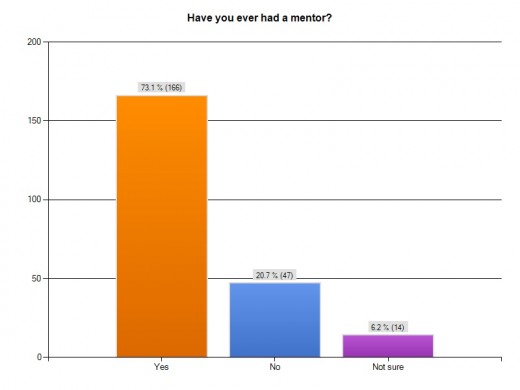
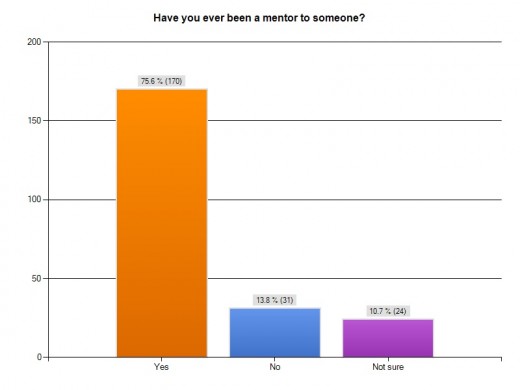
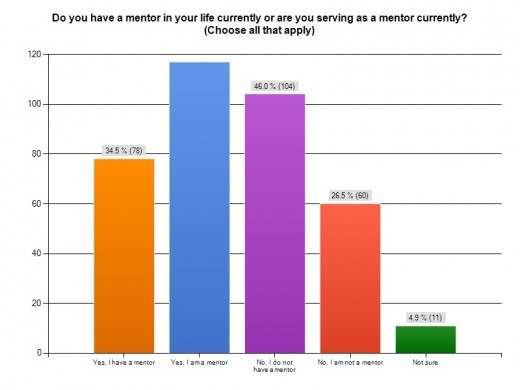
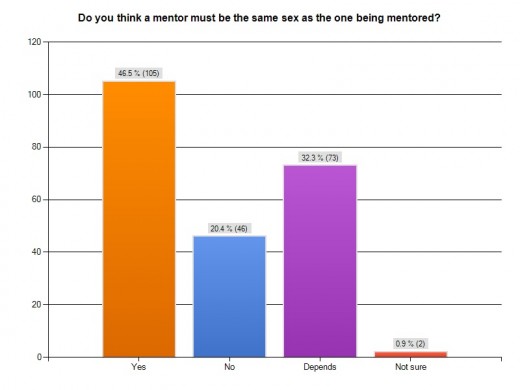
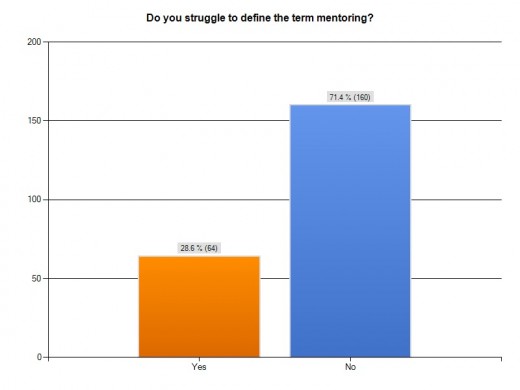

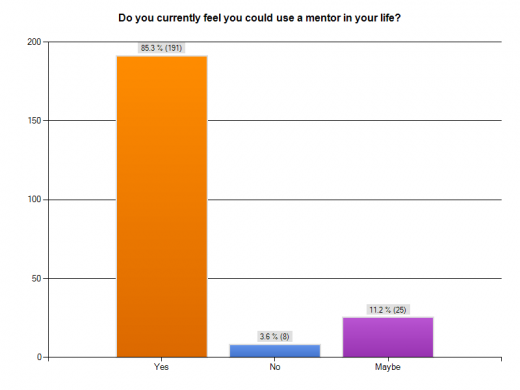
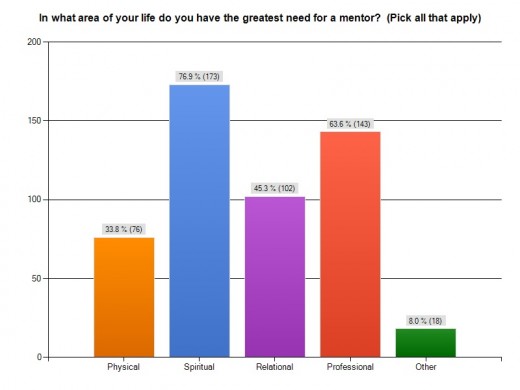
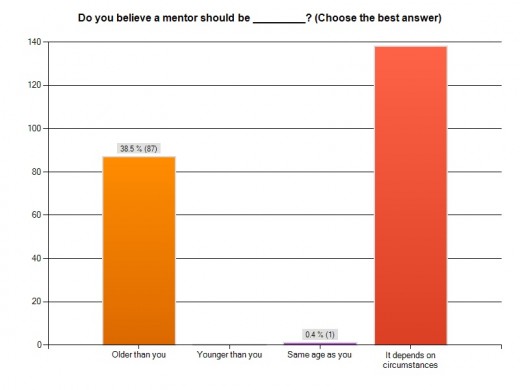
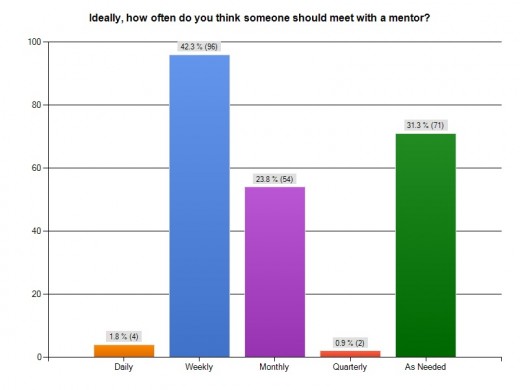
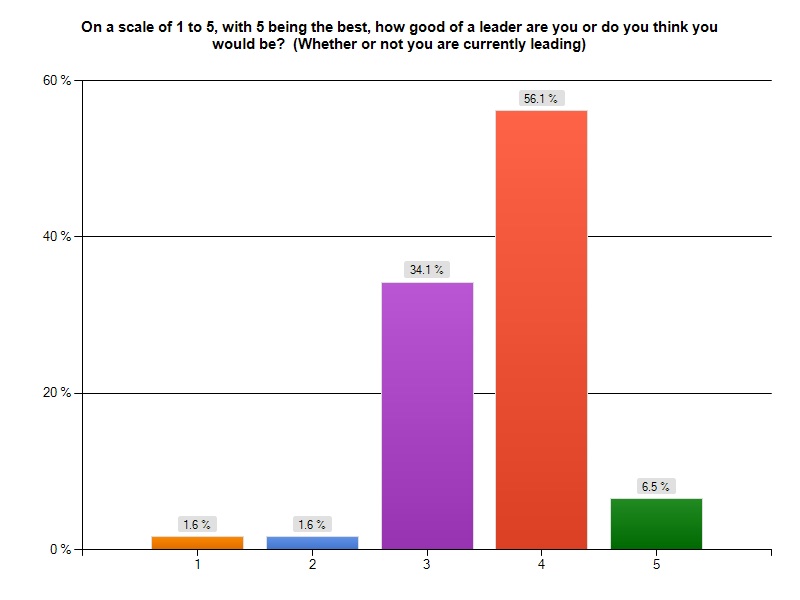
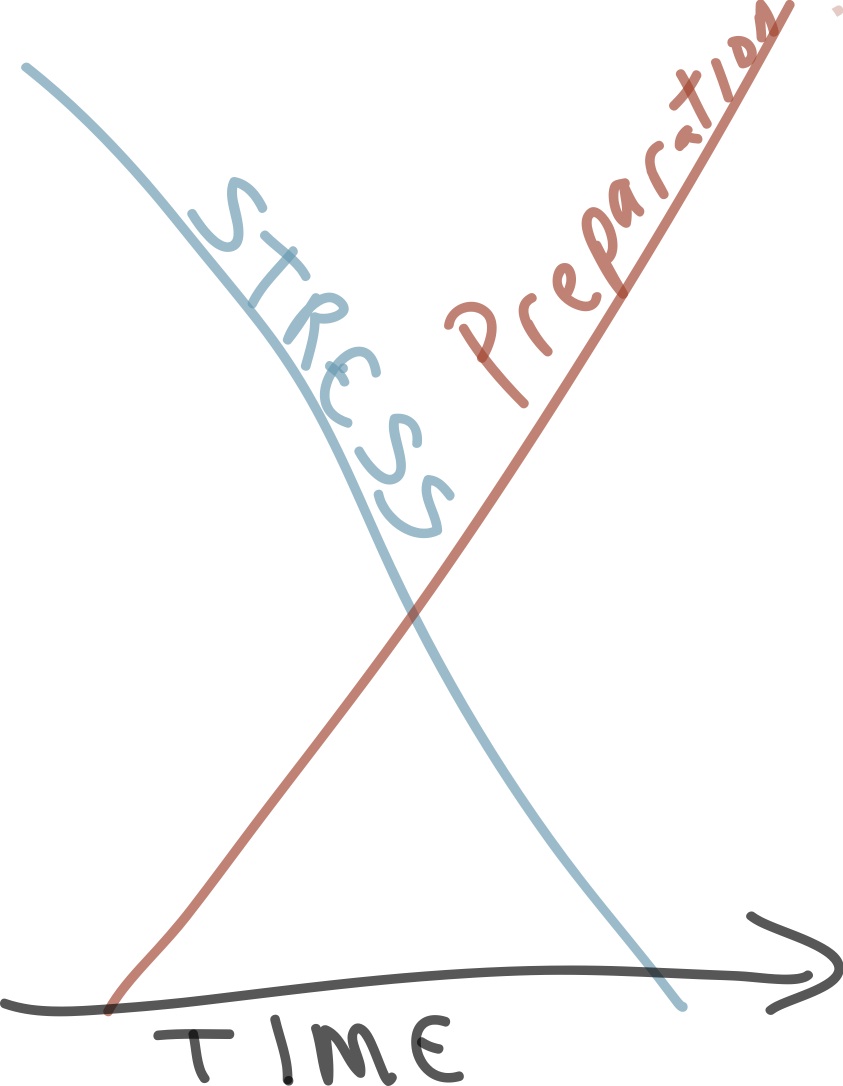
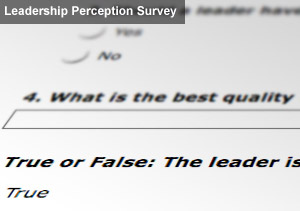
 Logging you in...
Logging you in...
 Loading IntenseDebate Comments...
Loading IntenseDebate Comments...
Mentoring I believe is a key to personal growth, development and success. As James ch 1 teaches us to have a teachable spirit so we must have mentors in our lives for live and consequently be a mentor. And we need mentors for different areas as mentioned in your survey. Most likely different people for the different areas in life: spiritual, physical etc… maybe use a multiple choice survey. Blessings
Thanks Bryan. Good reply
I find the result of more mentors than mentees surprising as five separate organizations that I served as mentor all reported more mentees waiting for mentors than otherwise. These are all non-profit organizations. I wonder if your survey separates for-profit from non-profit organizations, though my mentees varied from university students to professional project managers.
Interesting. Thank you for sharing!
Twitter: mrsmilton0304
says:
Guess I am a bit inquisitive during my current journey. Thanks for being a patient pastor.
And, by connecting, I think you scope out a mentor, make the ask, wait a reasonable time (not sure what that is) and if you haven't heard anything, move on to the next one. I want a mentor who is going to be more responsive than "no reply".
Twitter: mrsmilton0304
says:
How do you connect to a potential mentor?
What if you've asked someone to mentor you but haven't gotten a response?
What if you are being asked to mentor and don't know if you are mentor material?
I don't know if I am one but I know that there are some very nice ladies out there who think I am. Kind of a scary responsiblity that I don't know what to do with.
Is it enough to simply be myself without a 'label'?
Theresa, it's absolutely okay to be yourself without a label. That works even better for women. You are more natural at asking questions, (directions), seeking help. Guys sometimes need labels to make the relationship formal or official enough to ask the hard questions.
Very cool. It would have been fun to know how many were men, how many were women who responded.
Thanks Gail. Yea, I would like to know also. I was trying for a much more general look at mentoring as a subject and didn't want to read a lot into this survey of who said what and why, but I am thinking about some more targeted, specific surveys that focus on individual needs, desires, etc.
BTW, your husband is one of those mentors for me.
Thanks for sharing the results. Nothing too very surprising. The most encouraging part of all was that 85% of the people feel they would benefit from some kind of mentoring. And yes, most churches are doing very little *intentionally* about that. I'm trying to figure out how I can develop a mentoring culture at our church. Not easy, and tougher than developing a mentoring "program." It's natural more people were mentoring than were mentored – someone with the heart of a mentor and any skill will be mentoring several.
I like Clinton's approach of a 'Mentoring Constellation' – having a number of people in your life who you interact with to learn from them a specific skill or character trait that you see in them, doing so for a fixed duration. This is in contrast with Bob Biehl's traditional approach of having "that one special someone" who is basic your mentor for life.
Your phrasing of the same gender question made it tough to answer. Must/always are strong words. Plus it depends on what kind of mentor – the 'main' go-to person who you meet weekly with and share a lot of personal things? Same gender for sure (in my mind). One mentor of many from whom you are learning how to do xyz better? No problem with different gender, with appropriate safeguards and common sense.
A key concept I haven't seen discussed much here is how the idea of peer mentoring is increasingly popular. Younger folks in particular are much more interested in a mutual two-way relationship of equals, not a wiser-teaches-grasshopper 'mentor'. I think any good mentor already knows he/she can learn from their mentee, but peer mentoring flat out removes the mentor/mentee distinction and considers two people in a mutual mentoring relationship. Also, mentoring (and discipleship) triads/quads are becoming more popular, leveraging peer mentoring and greater diversity of input.
More resources? I think I already mentioned Anderson & Reese, Kreider, Hendricks, Clinton, and called Reverse Mentoring (Creps) a must-read. I also liked Mentor Like Jesus (Campbell), Passing the Leadership Baton (Forman, Jones, Miller), and by Lois Zachary: Creating a Mentoring Culture, The Mentor's Guide and The Mentee's Guide. Sports fans might like Tony Dungy's The Mentor Leader. Fatherless Generation may provide insights in (need for) relataional mentoring.
Great resources and good thoughts. I did think about the wording in the questions and opted this way for the gender question. I may do some more specific surveying in the future.